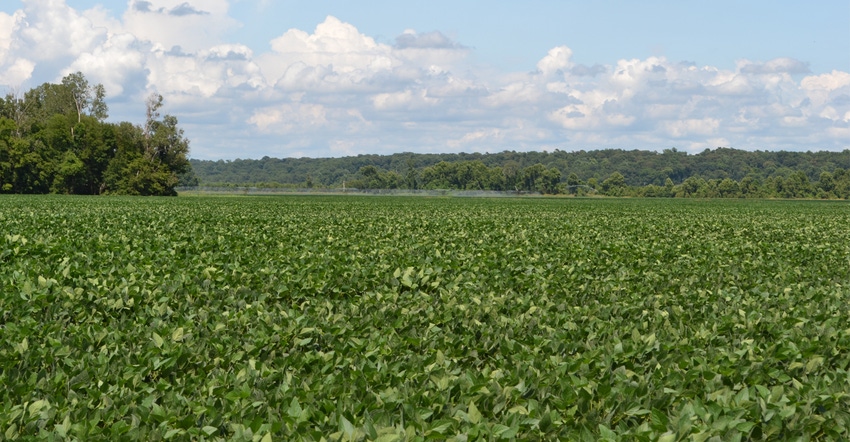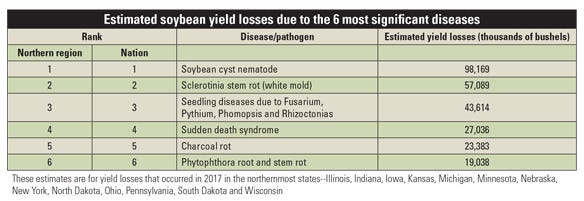February 12, 2020

Seed treatments play a crucial role by protecting the seed and seedlings against disease and insect pressure from the moment seeds are planted.
Hundreds of pathogens and insects can damage or kill the seed or seedlings before they even have a chance to develop, which can negatively influence the crop’s progress throughout the growing season and have a major impact on yield. With soybeans, seed and seedling diseases are a common and significant problem.
According to the most recent Soybean Disease Loss Estimates report published by the Crop Protection Network, “In all, 9.1% of total estimated soybean production (bushels) lost in 2017 were due to diseases in the top 29 soybean-producing states.”
During that year, they also estimate the U.S. produced more than 4.4 billion bushels of soybeans. The report goes on to say that year produced record production, exceeding records in 2016.
Beating yield robbers
Pest and disease pressures can affect the plant’s growth and development throughout the season because of poor nutrient uptake or reduced stand establishment, which can impact the crops’ overall yield. Most crops benefit from use of a seed treatment. However, seed treatments are most commonly used on soybeans, dry beans, peas, potatoes, lentils and cereals such as wheat.

While seed and seedling diseases in soybeans are a common problem, fungicide seed treatments can reduce the occurrence of many seed and seedling diseases. Treating soybean seed has greatly increased over the past 10 years due to the effectiveness of fungicides. With the growing use of fungicide seed treatments, the industry can decrease the millions of soybean bushels lost each year to diseases such as phytophthora, pythium, rhizoctonia and fusarium.
Seed treatment options
Continued advancements in seed treatment have given ag retailers a variety of options to help growers protect crops from the hundreds of fungi and insects that may negatively impact crop yields. Seed treatments as part of a strong crop management plan can help growers achieve the higher yields that they strive to produce each growing season. CHS Agronomy offers two industry-leading portfolios for seed treatments designed to help fit the needs of growers.
STI Customized is a custom-blending seed treatment service that has grown rapidly the last several years. CHS Agronomy offers three blending sites, allowing their ag retailers to choose from over 350 custom blends or create a completely new and unique blend for their specific needs.
Packaged Seed Care Portfolio offers agronomic performance against well-known seed-borne and soil-borne diseases. CHS Agronomy’s Packaged Seed Care portfolio provides protection for various types of crops. It offers four different product options, including:
Halifax fungicide and insecticide. This is a three-fungicide mix and insecticide that sets a new standard for water mold control. Both options deliver superior protection against well-known seed-borne and soil-borne diseases.
Lancaster fungicide. A three-fungicide mix for cereals, this product includes a polymer and color in a ready-to-use formulation.
Lancaster fungicide and insecticide. A product for cereals, it provides protection with a third-generation insecticide and a systemic fungicide defense system.
For more information about CHS Agronomy’s seed care portfolio, visit chsagronomy.com.
Source: CHS Agronomy, which is solely responsible for the information provided and is wholly owned by the source. Informa Business Media and all of its subsidiaries are not responsible for any of the content contained in this information asset.
You May Also Like




